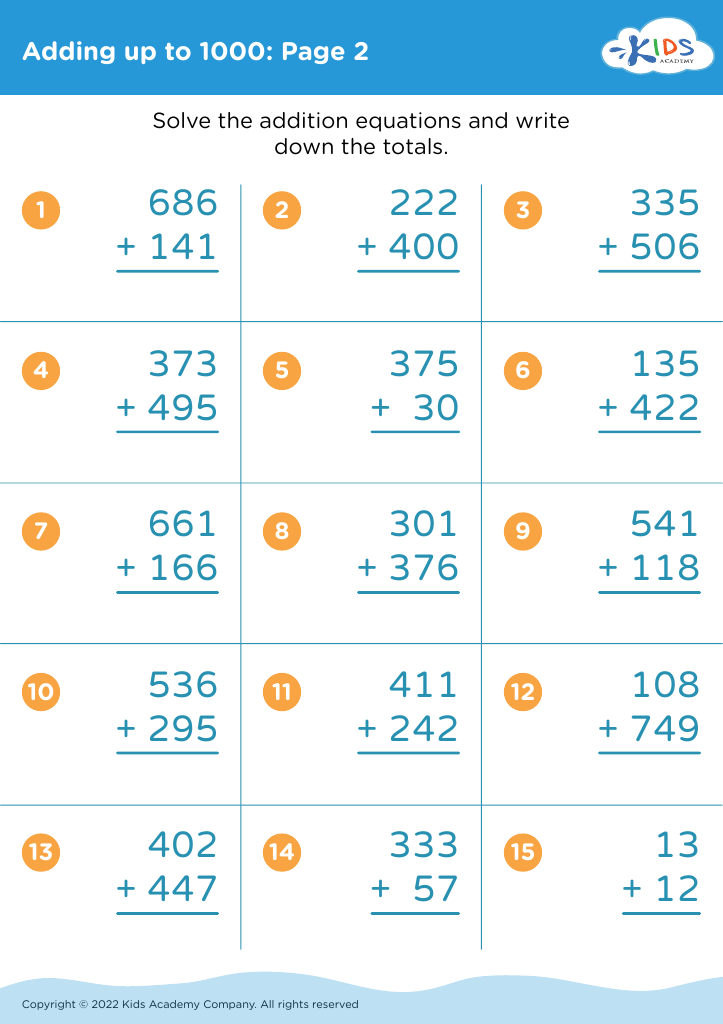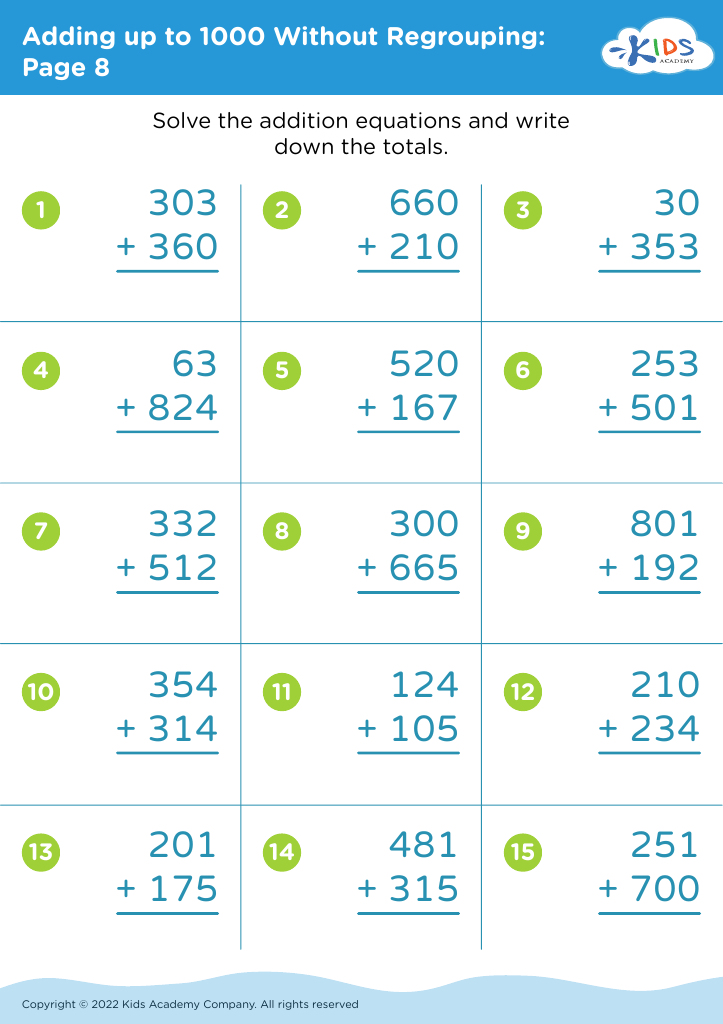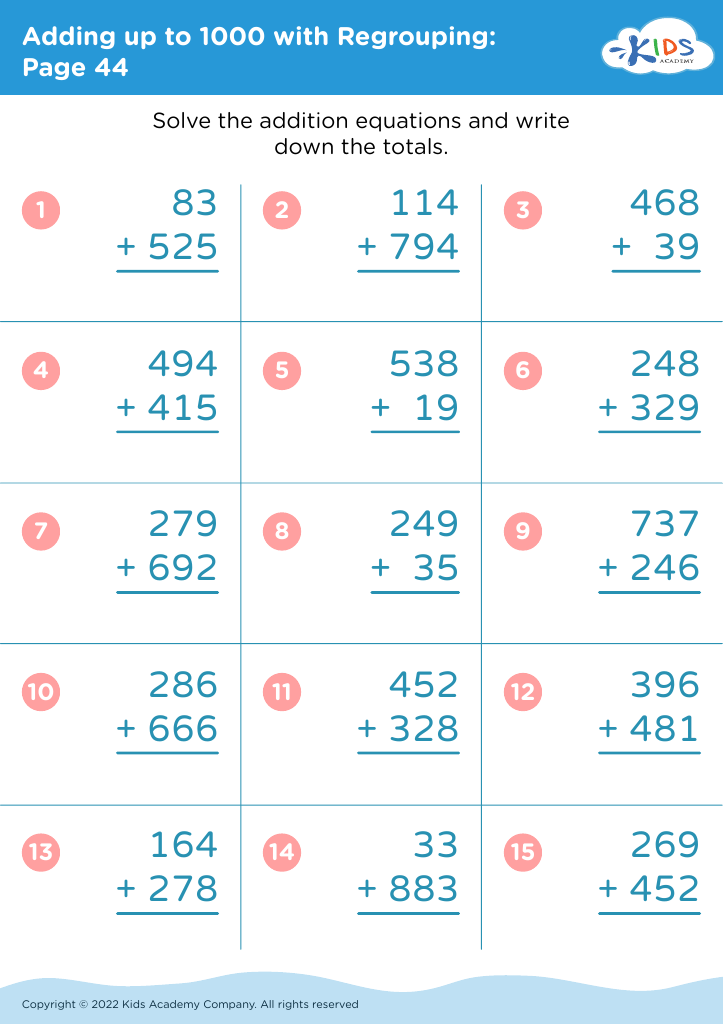Develop critical thinking Math Worksheets for Ages 3-9
13 filtered results
-
From - To
Nurture your child's analytical skills with our dedicated "Develop Critical Thinking Math Worksheets for Ages 3-9." Curated by educational experts, these worksheets combine interactive and engaging activities to enhance problem-solving abilities and logical reasoning. Each worksheet is thoughtfully designed to spark creativity and challenge young minds, turning learning into an exciting adventure. Perfect for early learners, our resources foster a strong foundation in math while promoting essential critical thinking skills. Parents and educators can use these printables to support and enrich classroom learning or as a fun, educational activity at home. Dive into our collection to build the thinkers of tomorrow!
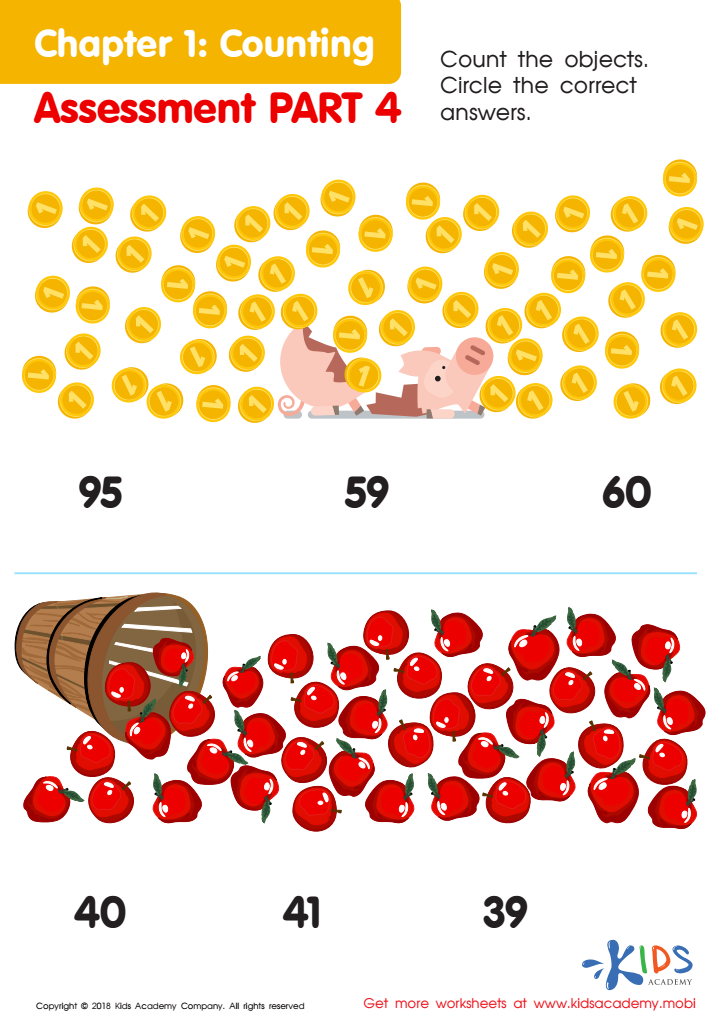

Counting: Assessment 4 Worksheet
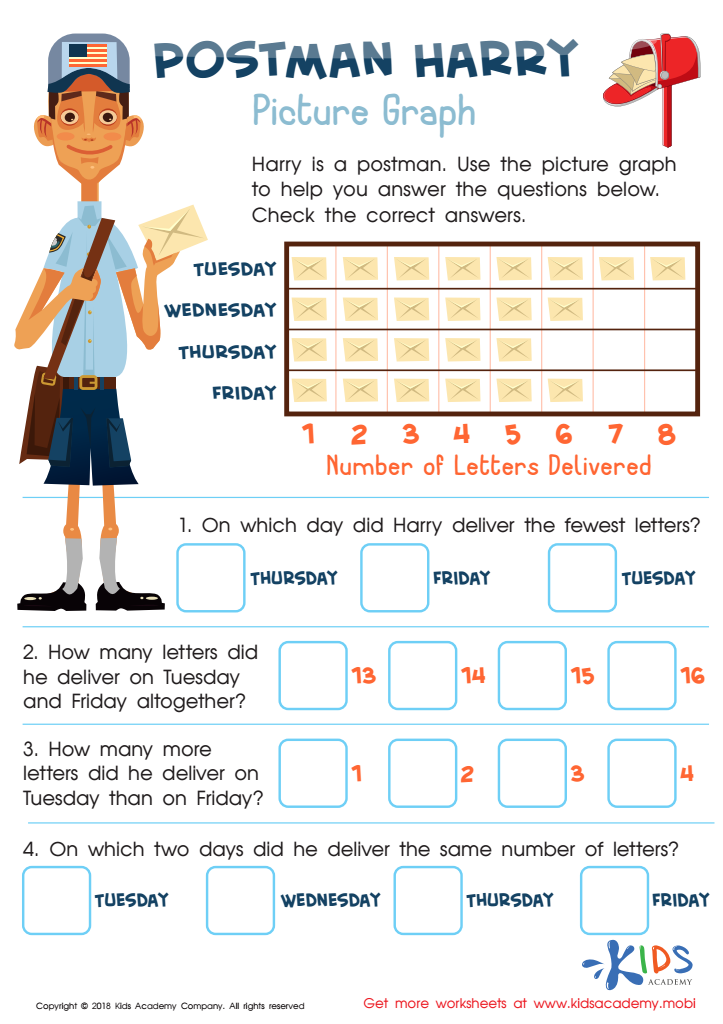

Postman Harry: Picture Graph Worksheet
Developing critical thinking skills in math for children aged 3-9 is incredibly important for several reasons. Firstly, it fosters problem-solving abilities that are essential both inside and outside the classroom. Children who can analyze, reason, and solve mathematical problems become more adaptable learners, giving them the tools they need to approach challenges in various subjects confidently.
Secondly, early exposure to critical thinking in math builds a solid foundation for more complex concepts later on. By engaging with math critically from an early age, children learn to understand "why" something works, not just "how" to do it. This deeper comprehension makes future learning more straightforward and less intimidating, and it facilitates long-term academic success.
Additionally, involving critical thinking in math helps improve children's self-esteem and independence. When they succeed in solving math problems through logical reasoning, they gain a sense of accomplishment that boosts their academic confidence. This self-assurance can spill over into other areas of their lives, promoting overall well-being.
Lastly, math-related critical thinking is a vital life skill. It teaches children to make reasoned decisions based on data, evidence, and logical analysis—capabilities that are invaluable in daily life, from personal finance to professional environments. Therefore, parents and teachers should prioritize fostering these skills early on to set children up for comprehensive success.

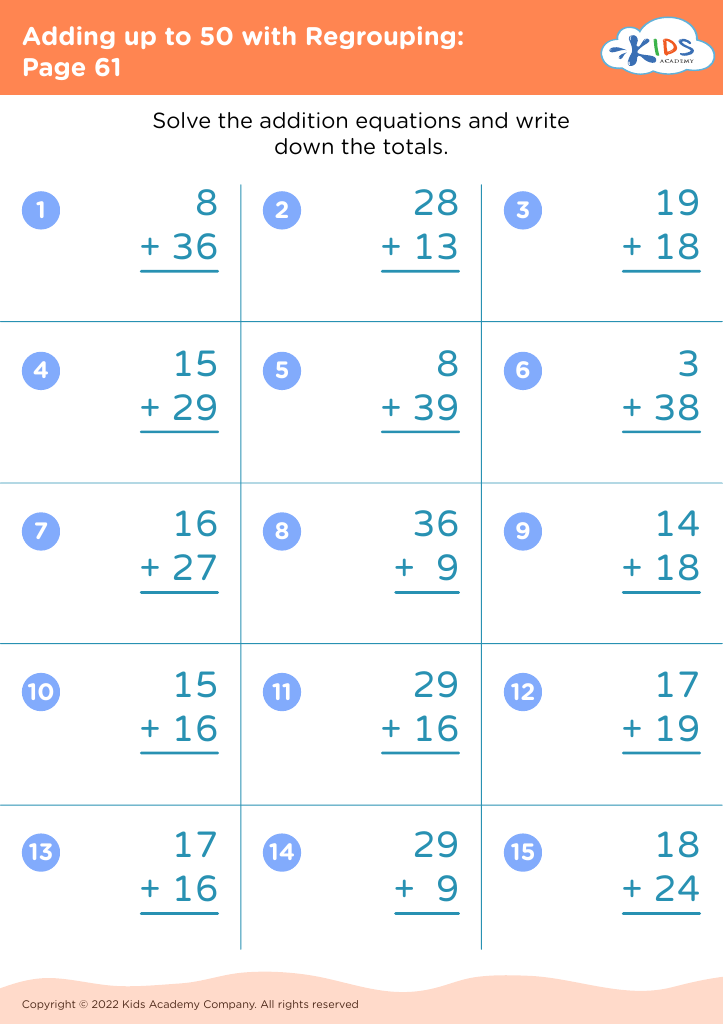

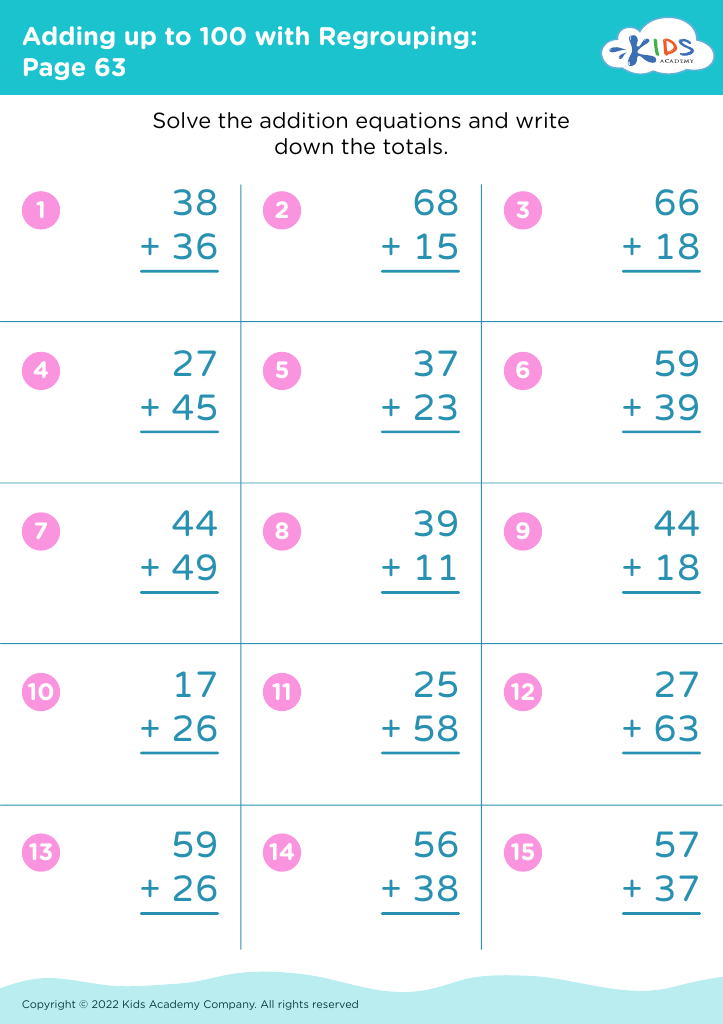
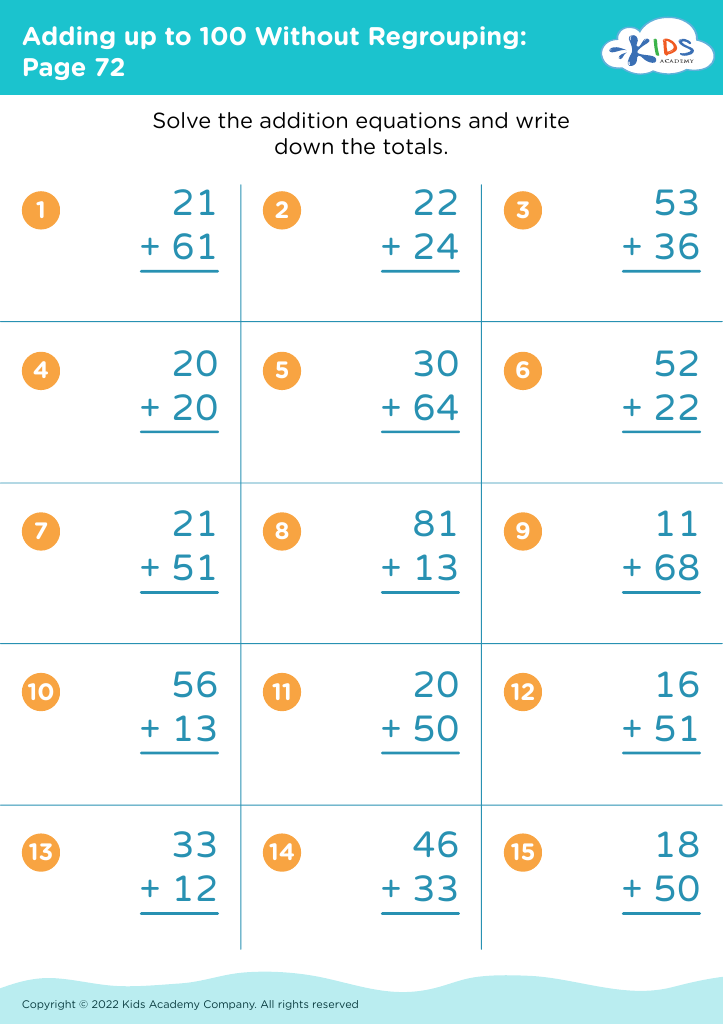
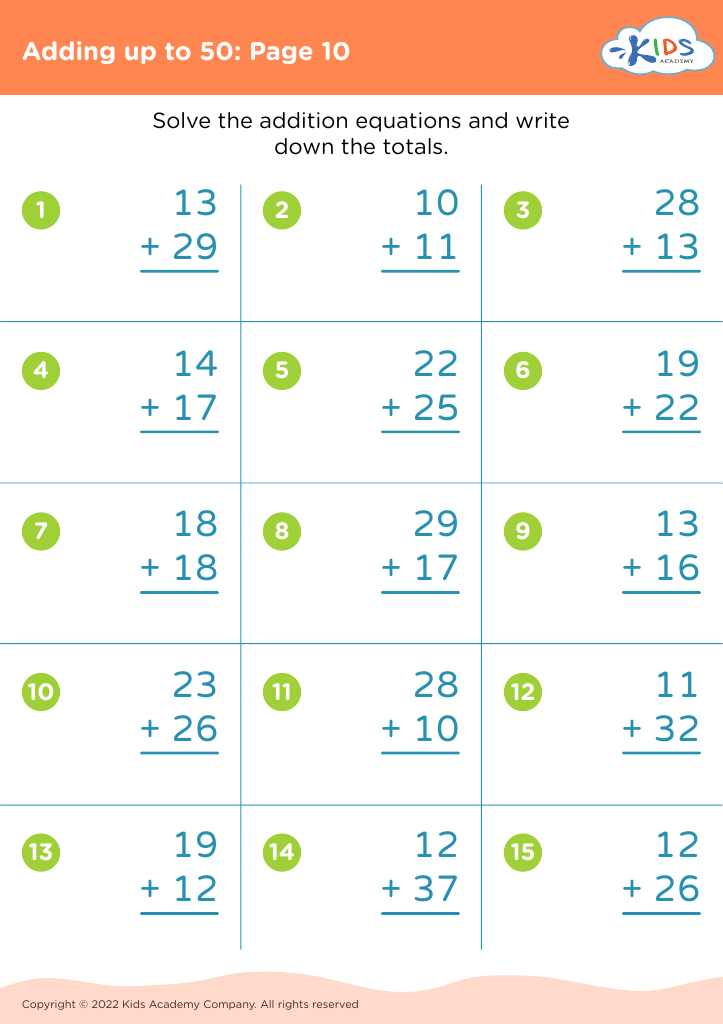
 Assign to My Students
Assign to My Students




